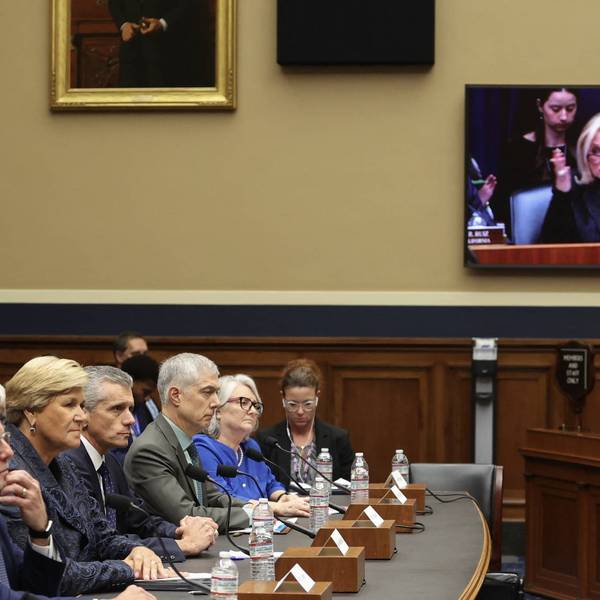On Monday, California Attorney General Xavier Becerra was nominated to serve as President-elect Joe Biden's Secretary of Health and Human Services (HHS), the federal agency that oversees healthcare and many immigration programs. Unlike other nominees or potential candidates such as Rahm Emanuel, Bruce Reed and Neera Tanden who have been met with outrage from the Left, the response to Becerra's announcement has largely been pleasant surprise.
Rep. Ro Khanna (D-Calif.) tweeted, "He is a strong choice and has always worked well with progressives." Zephyr Teachout, a former campaign surrogate for Bernie Sanders, gushed "I am genuinely excited about the Becerra choice." As a longtime supporter of a single-payer system whose AG tenure has focused doggedly on healthcare, Becerra may well be poised to use a powerful federal post to secure key progressive gains.
Becerra's highest-profile act as AG has been to defend the Affordable Care Act against a spurious right-wing lawsuit, which would seem to fit well into Biden's professed goal of defending the ACA. It's also easy to imagine HHS reversing several of the Trump administration's moves to weaken the landmark health law, which included truncating the open enrollment period, defunding navigator programs and advertising, and expanding the sale of flimsy short-term plans that skirt basic coverage requirements.
But it's also easy to imagine ways in which HHS could go beyond straightforward ACA fixes under Becerra's leadership. He supported single-payer healthcare legislation both as a member of the California State Assembly in the 1990s, as well as in Congress, where he co-sponsored Medicare for All bills in the House. Even after being tapped to replace Senator-elect Kamala Harris as California's AG in 2017, Becerra reiterated his support for public financing of the healthcare system, arguing that single-payer "takes away the inefficiencies in a system that has turned healthcare for people into a commodity."
While he's reportedly assured his future boss he won't be pushing for Medicare for All in office, his appointment could nonetheless be a boon for state-level advocacy: Biden's team has previously indicated openness to issuing waivers to allow states to reallocate federal healthcare funding into a single-payer program -- a process Becerra would be in charge of. As one of the strongest state-level pushes for such an overhaul is taking place now in California, it's hard to see Becerra rejecting necessary waiver applications from his own state.
It's not just that he's unlikely to obstruct state single-payer programs. Becerra has also demonstrated a willingness to use state power to confront the healthcare industry -- a relatively low bar that many Democrats nonetheless fail to clear. He filed suit against Sutter Health, a poster child for consolidation whose status as a megacorp allowed it to wield undue pricing power and bilk patients. He also challenged a Trump administration rule that sought to make it harder for home care workers to unionize. This past year, he urged insurers to review their compliance with mental health parity laws, to make sure sufficient numbers of providers are covered by their plans.
Crucially, Becerra has also urged the use of "march-in rights," a never-used provision of the 1980 Bayh-Dole Act, to seize certain pharmaceutical patents and break manufacturers' monopoly on production and pricing. Along with Section 1498 of the federal code -- which grants even greater government power to break patents--these statutes could be key tools for an administration looking to advance healthcare prerogatives without the help of Congress. Even the mere threat of invoking march-in rights or 1498 could have significant ripple effects that curb pricing growth in one of the most profitable industries on the planet, delivering much-needed relief for patients struggling with staggering costs.
Ultimately, the Left can only expect so much to come from inside a Biden administration. But Becerra offers hope that the Department of Health and Human Services won't actively fight against single-payer at the state level, and may even target some of the healthcare sector's more egregious business practices. That's not enough to alleviate the rampant suffering at the hands of the private healthcare industry, but compared to Alex Azar -- the former pharma executive occupying the job now--it's certainly a start.




